In this blog, you will learn how to install and configure WAMPServer in a computer. It is very easy to forget to cover the basics. For web developers, this can be very costly; especially when you are you are looking to develop an application in PHP.
Fortunately, it is possible to setup a virtual development environment where we can start coding in PHP as well as test the different features and functionalities of our website before taking it to live.
WAMP is one popular choice for developers who are using Windows operating systems. While there are different choices, such as XAMPP, this blog will cover the exact steps of installing the WAMP server.
What is a WAMP Server please visit VAMPServer site.
How to install a WAMP Server.
Installing and Setting Up WAMP Server in Windows PC.
Here you can download WAMP Server installer file for your Windows Computer.
1- Click on the WAMP SERVER 64 or 32 bit to download WAMPServer.
2- Check the installer file that matches your Windows OS. If you aren’t sure whether you have a 64-bit system or a 32-bit system. Just right-click on This PC (My Computer) and then Properties.
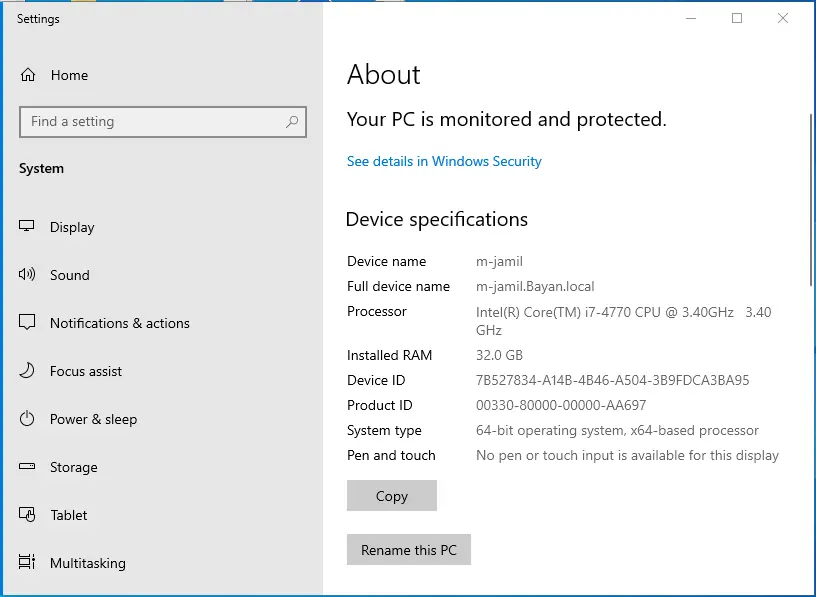
Install and configure WAMPServer
3- Open your Downloads folder and then double-click the WAMP server installer file.
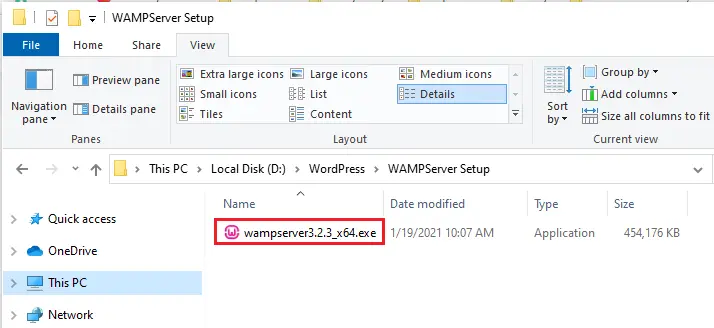
4- Select the language and then select to initiate the installation process.
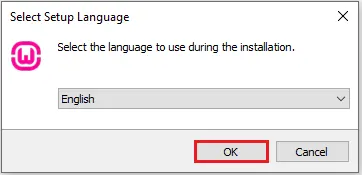
5- Choose I accept the agreement checkbox and then click next.
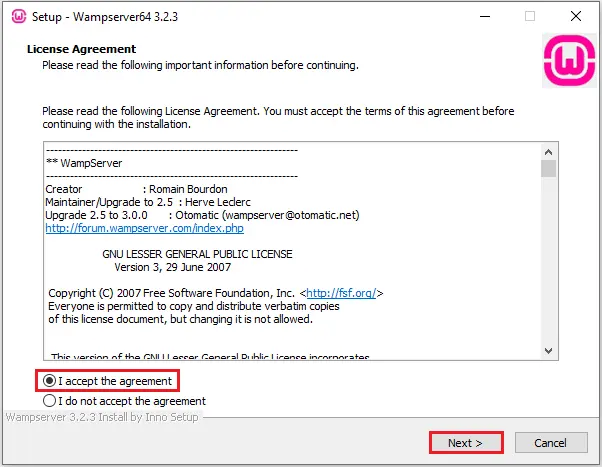
6- Read the information and click next.
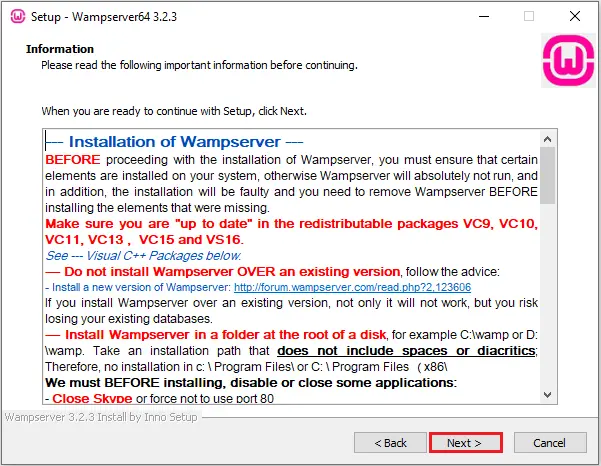
7- Select a folder where you want to install the WAMP server. In most cases, it is just good to leave it default. Now click Next to continue.
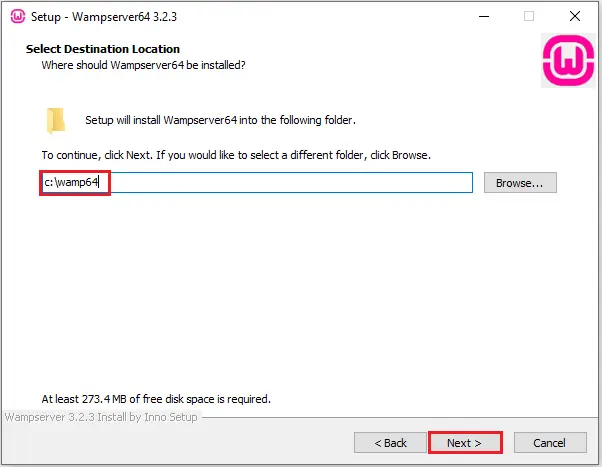
8- Select latest components and click next.
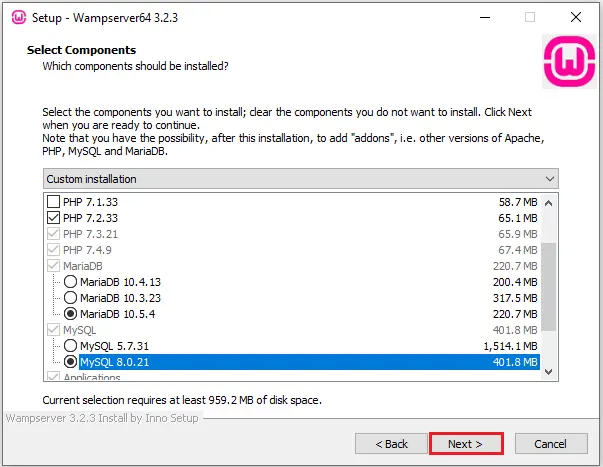
9- Here you can select to have a program’s shortcuts, click Next.
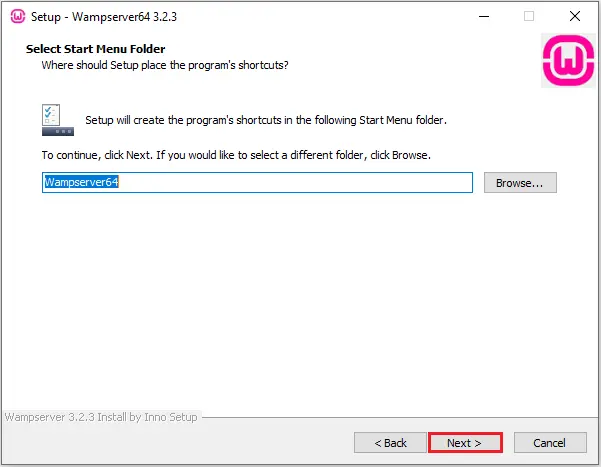
10- Select the Install button to install the WAMPSERVER64.
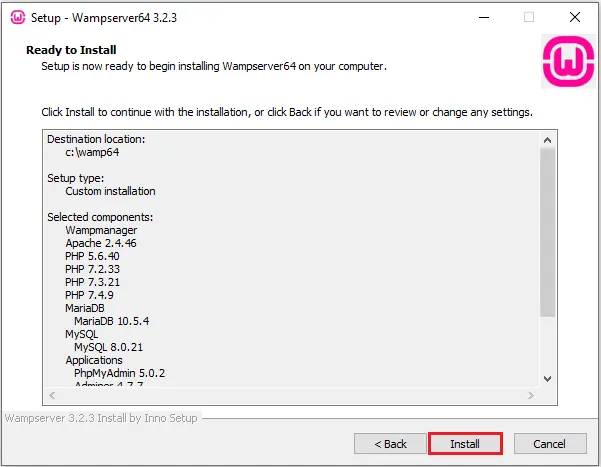
11- Installing Wamp Server.
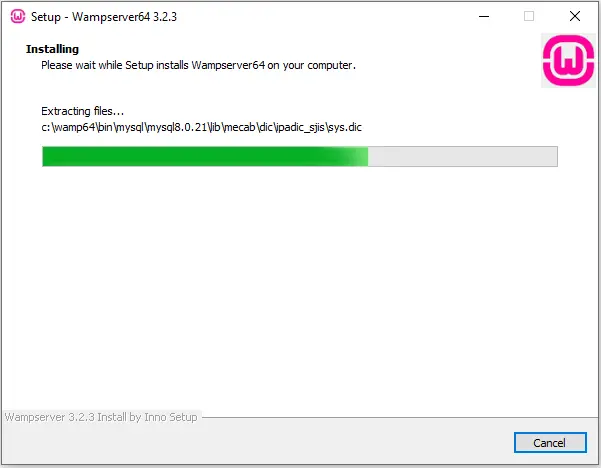
12- After completing the process, you will be required to select your default browser. The default file browser will be your Internet Explorer, but you can change it to Chrome, Opera, Safari, or Mozilla.
Your default browser must have a corresponding .exe file. For instance, chrome.exe, opera.exe, safari.exe, firefox.exe. Select no to continue.
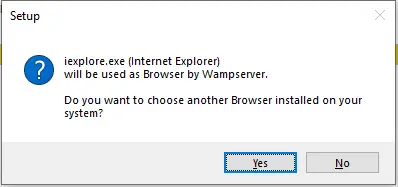
13- Read the setup – Wampserver information and click next.
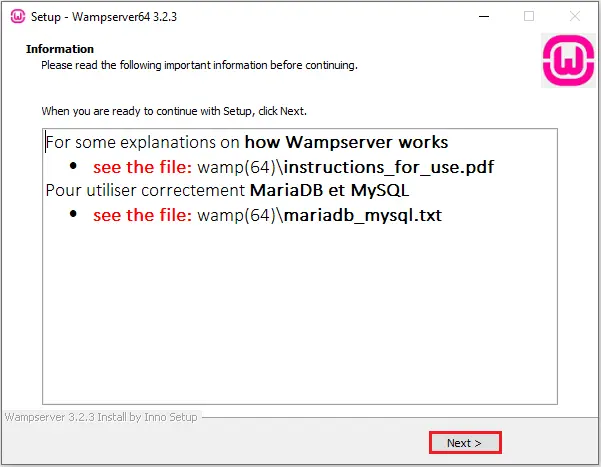
14- Click Finish.
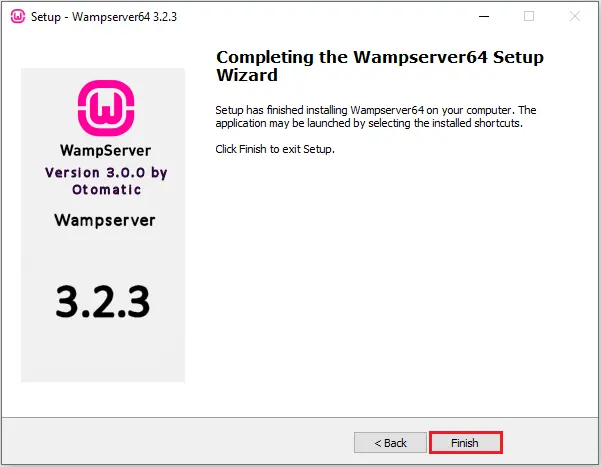
15- Double click on Wampserver shortcut from your desktop to Launch Wamp Server.
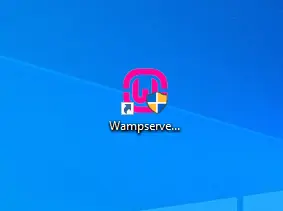
16- At this step, you must be able to see a WAMP server icon at the computer tray of your Windows PC taskbar. You must see the green icon to know that the WAMP server is working correctly.
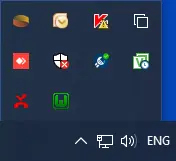
17- The orange icon is an indication of a problem that one of the services and A red icon indicates an issue with Apache and MySQL.
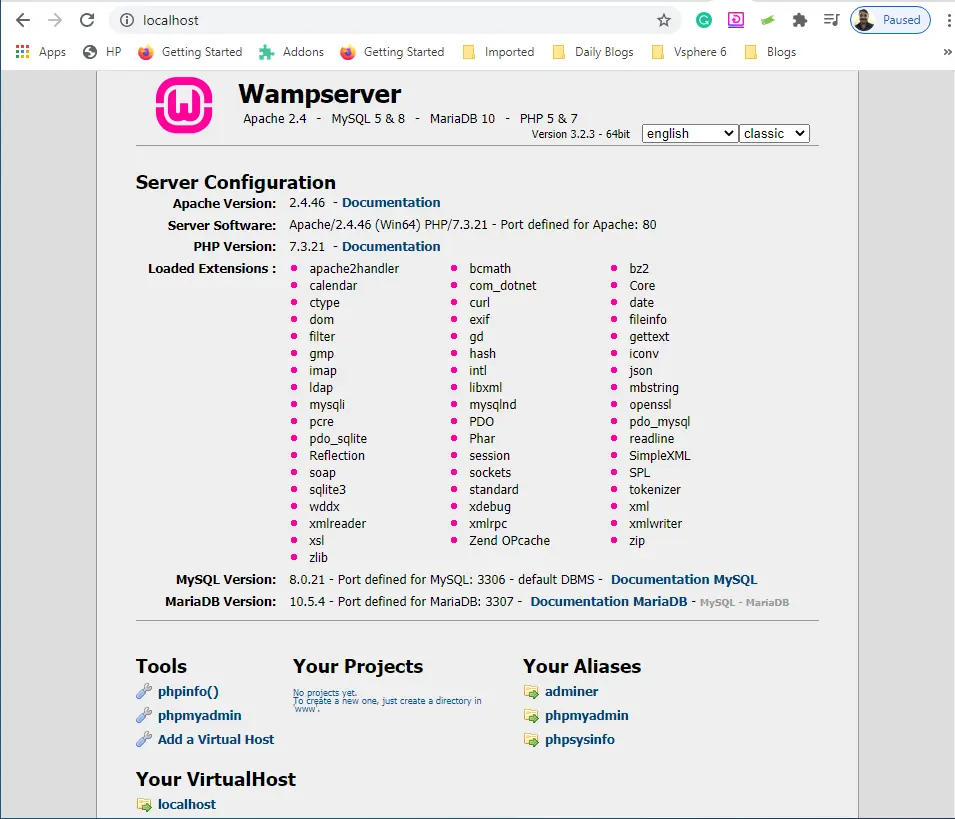
Install WordPress on WAMP Server
1- There are 2 versions of WordPress (WordPress.org & wordpress.com).
In this blog, I will be talking about wordpress.org, which is a free, open-source CMS for website building and maintenance. Select download WordPress as a zip archive.
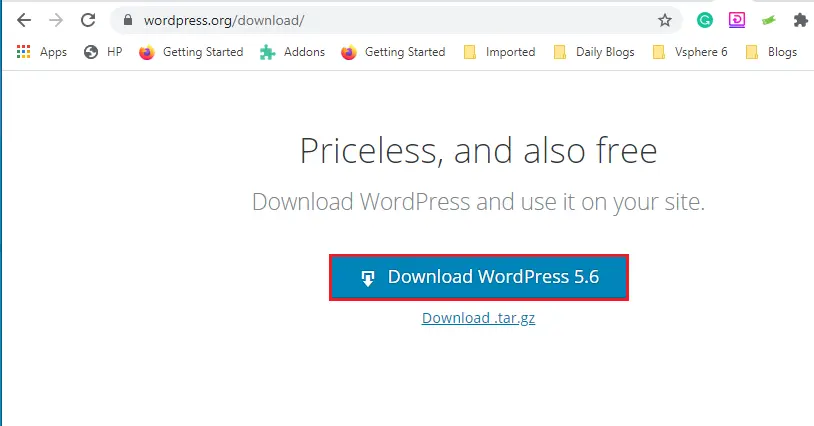
2- Right-click on wordpress-5.6.zip, select winzip and unzip to here.
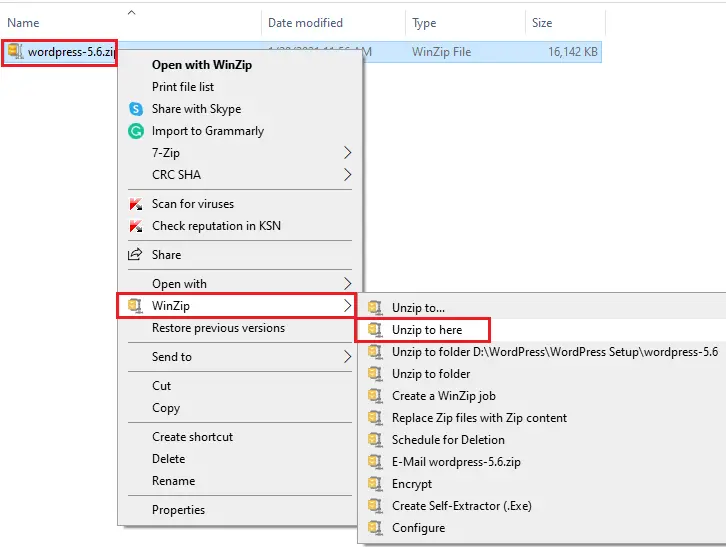
3- Copy unzipped wordpress folder.

4- In my computer, the WAMP server file was installed in C:wamp64, so we need to paste our WordPress folder into the C:wamp64www folder.
To avoid confusion of the project, we can select to give the WordPress folder a name that you will remember such as TestSite, etc. Bear in mind that this will be your local WordPress site URL.
Wamp server directory.
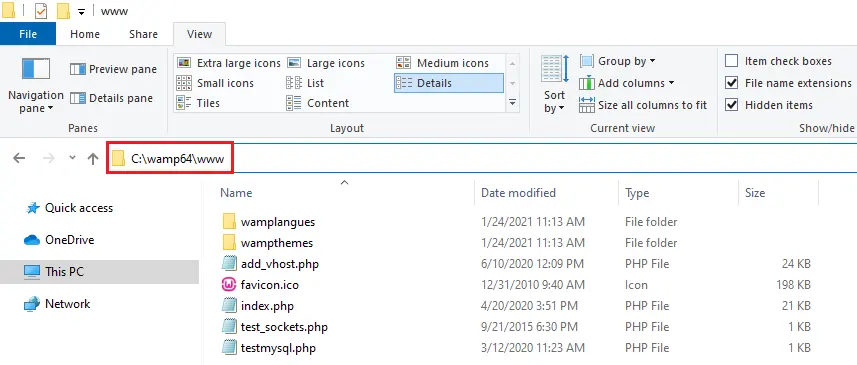
5- Renamed WordPress folder as TestSite.
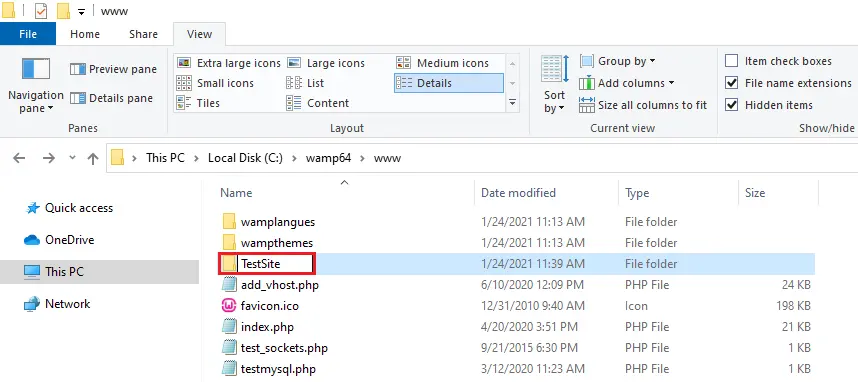
6- Type the following address into your default web browser: localhost/TestSite/
Select a language and then click continue.
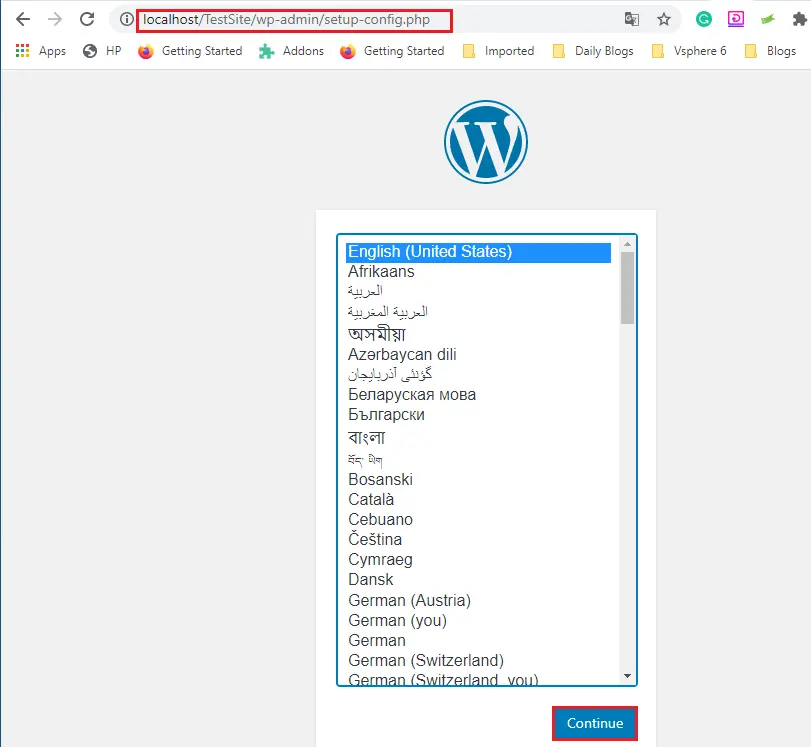
7- Select Let’s Go!
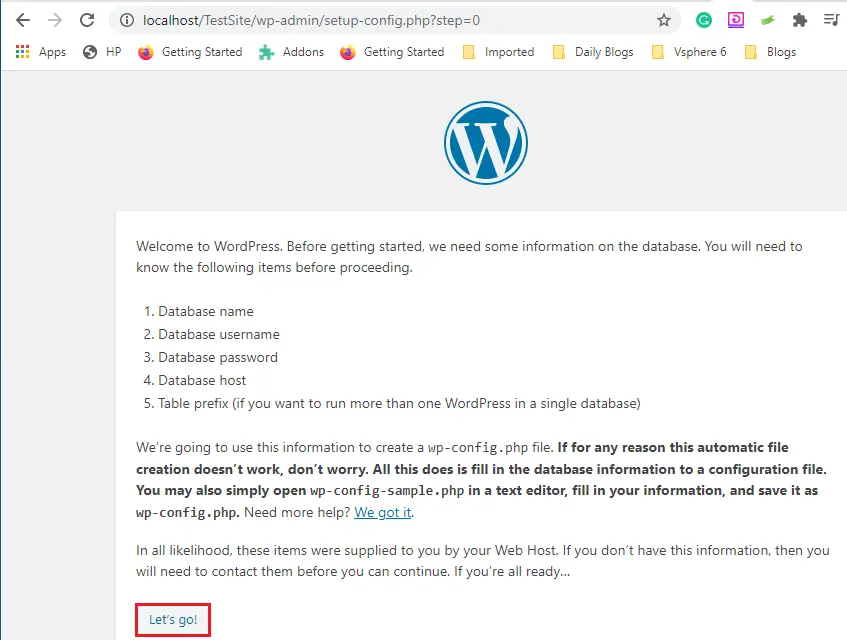
8- Leave it for a while.
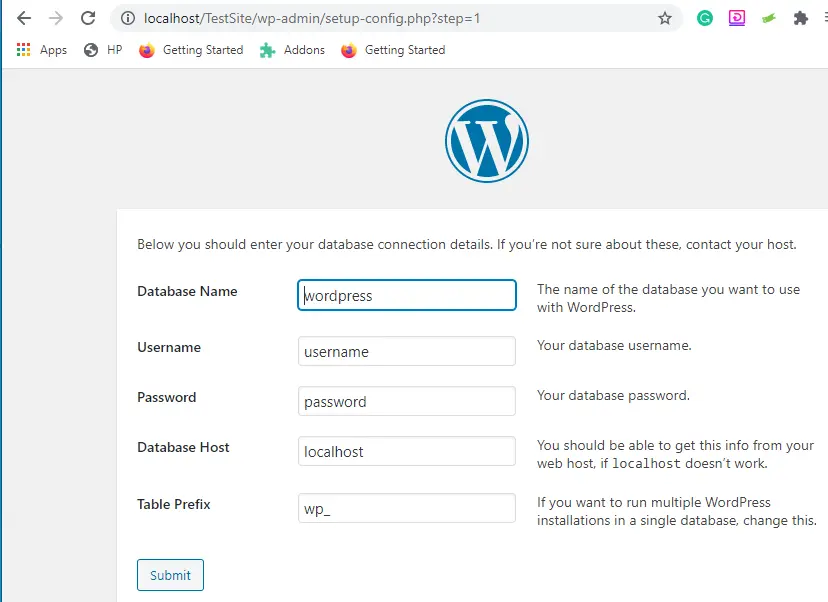
How to Set Up a Database for WordPress
1- Now we have finished the WAMP installing, the next step is to create a MySQL database. In your web browser type localhost/phpMyAdmin and hit enter. The default browser will show displaying the phpMyAdmin log in screen.
Username: root
Leave the password area field empty and then select the Go button. This will automatically log you in.
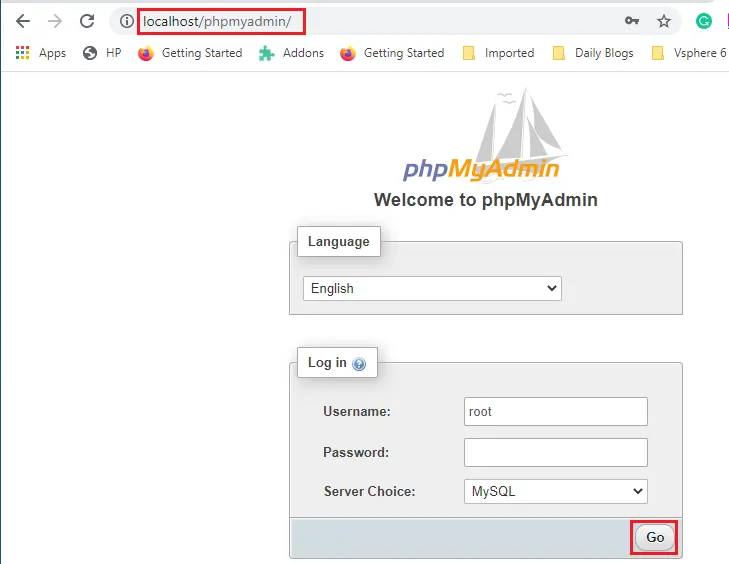
2- Click on the Databases tab in phpMyAdmin to create a database name for your WordPress.
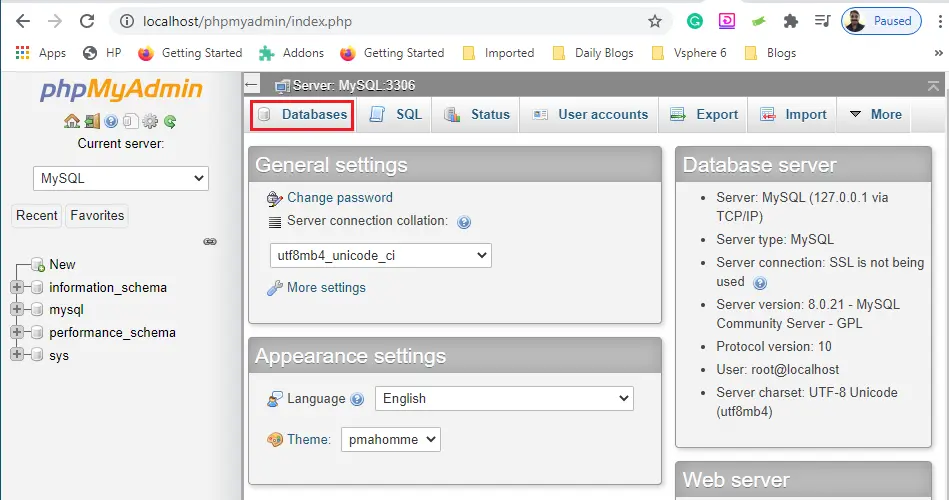
3- Type a database name (TestDB) Select Create.
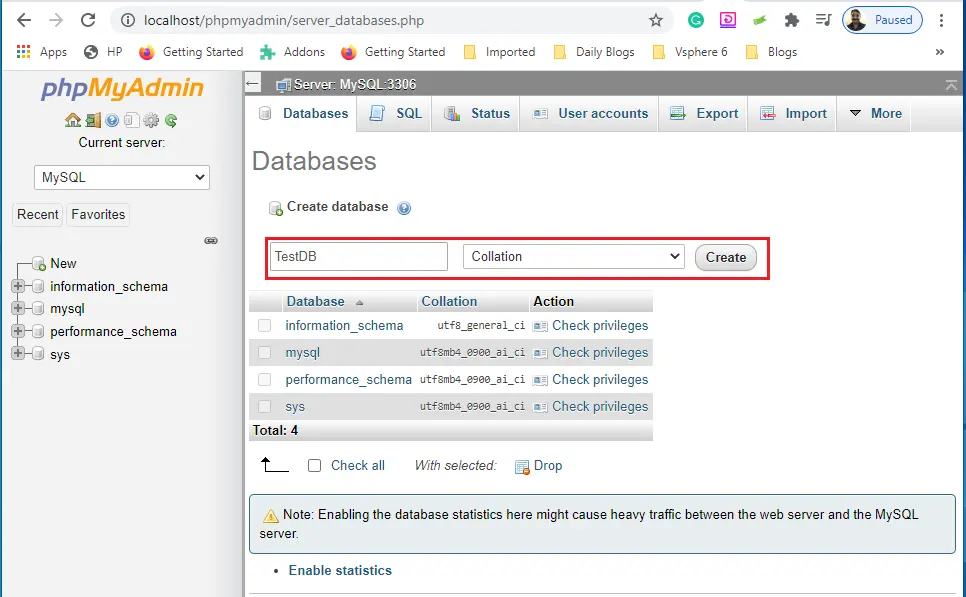
4- Your database is ready now, you can now install WordPress.
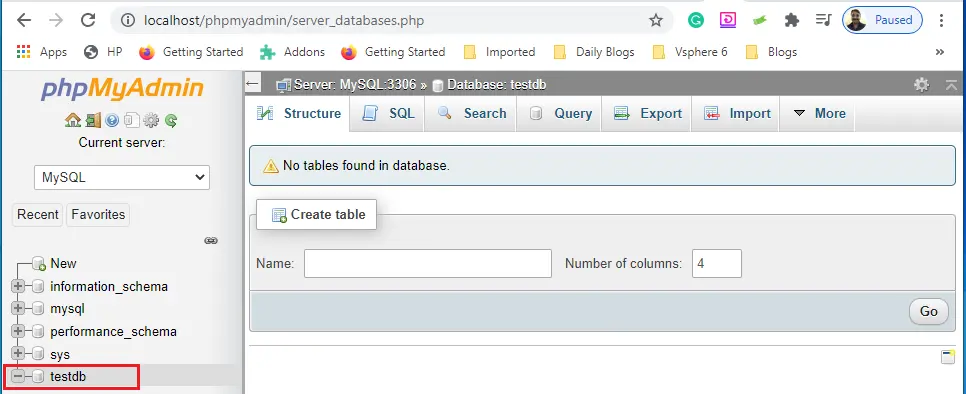
Install and configure WAMPServer
5- Go back to your http://localhost/TestSite/ You will be required to type your database name, username, with password, host, and table prefix. In my case, I have entered the following credentials.
Database Name: TestDB
Username: root (default MySQL password)
Password: (leave this field blank)
Host: localhost
Table prefix: wp_
Click Submit.
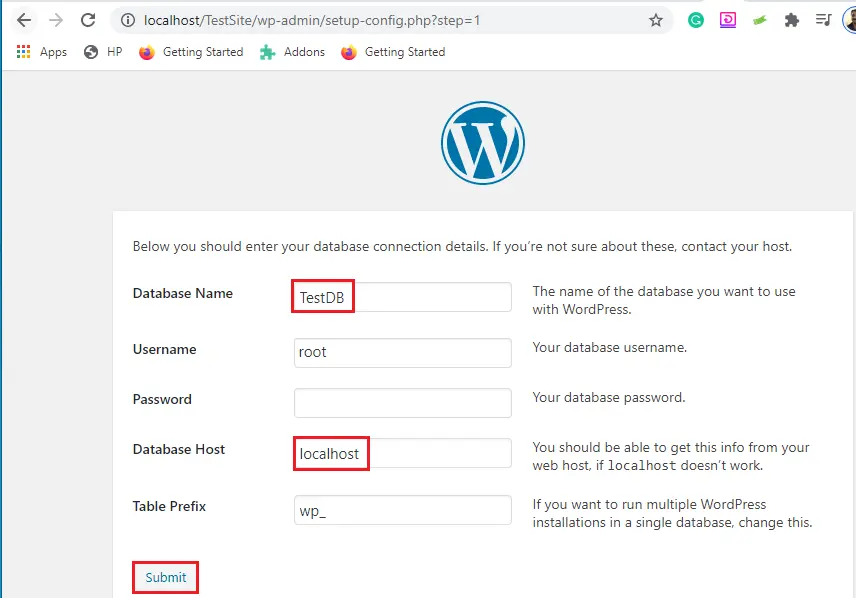
6- Select Run the installation.
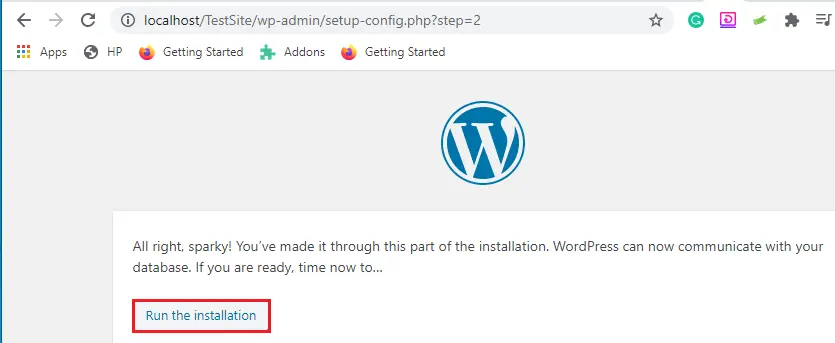
7- This window will ask for your information regarding the new WordPress website. These include the (site title, username, password, email address)
Enter the credentials and then press Install WordPress.
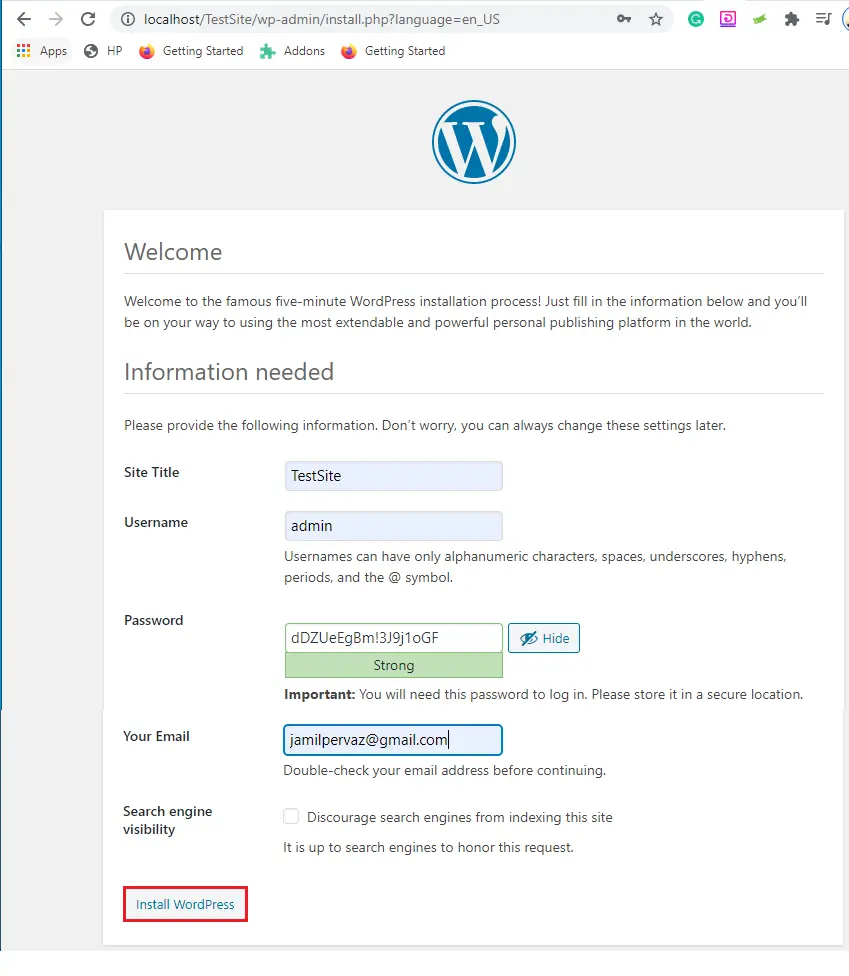
8- After completing the installation, you will be greeted by a success message. Select login.
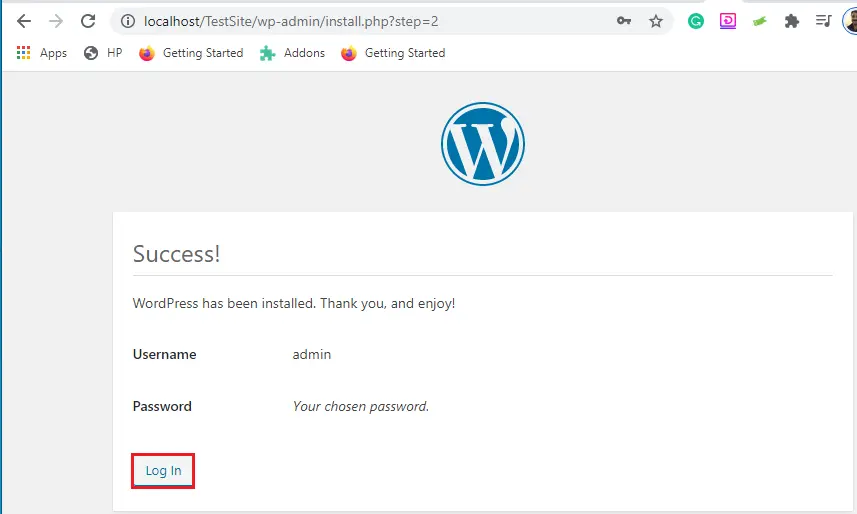
9- You can now move forward and type your login username, and password to log into your WordPress dashboard.
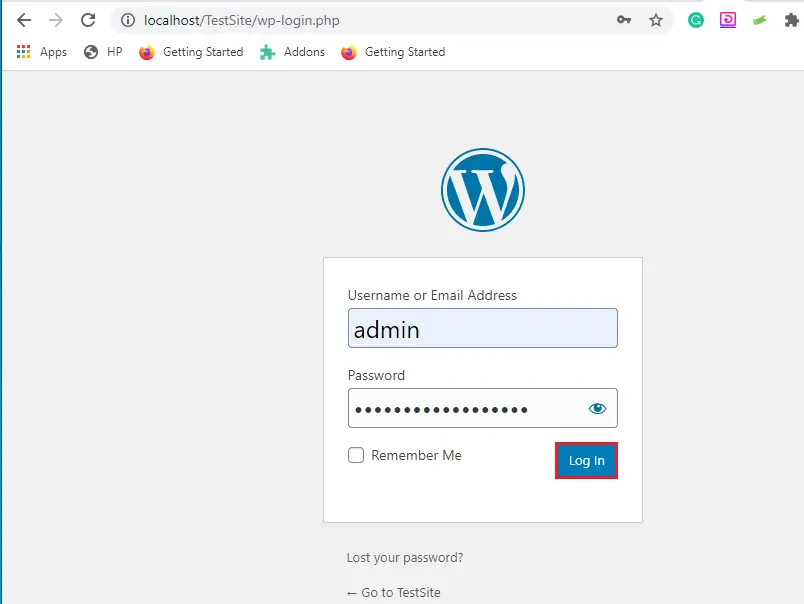
10- WordPress Dashboard.
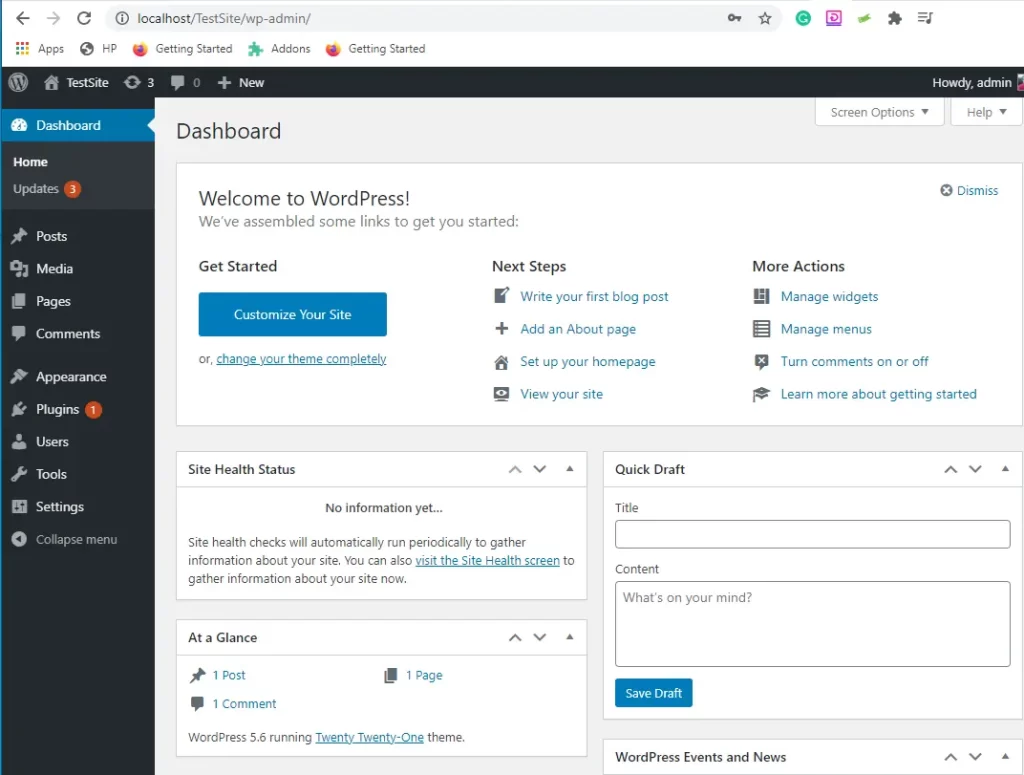
Related: Uninstall WAMP Server


